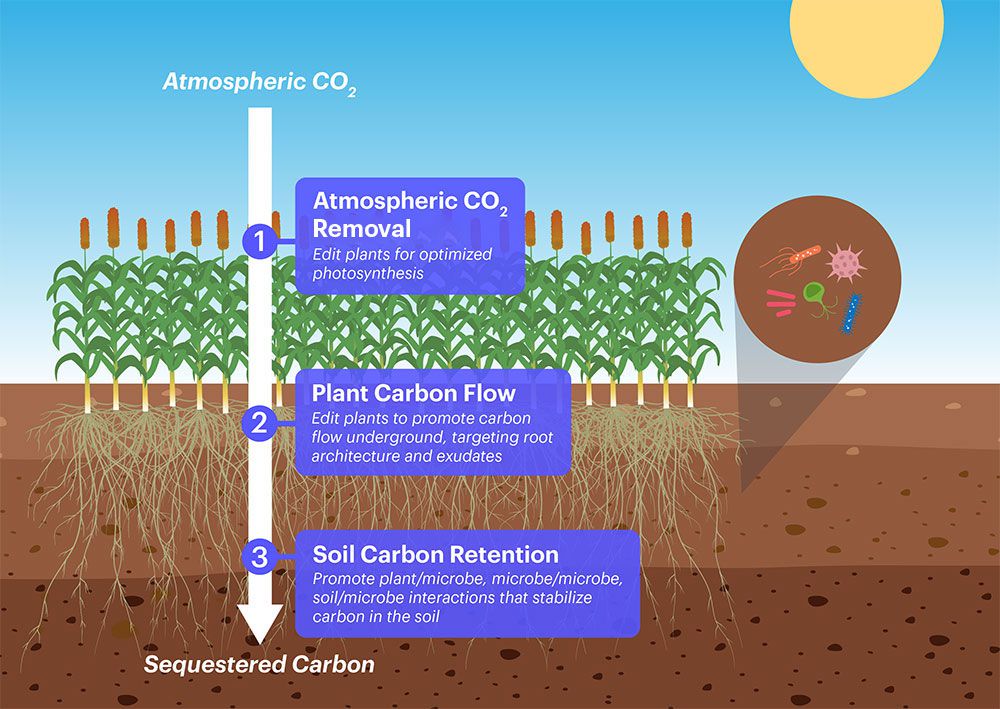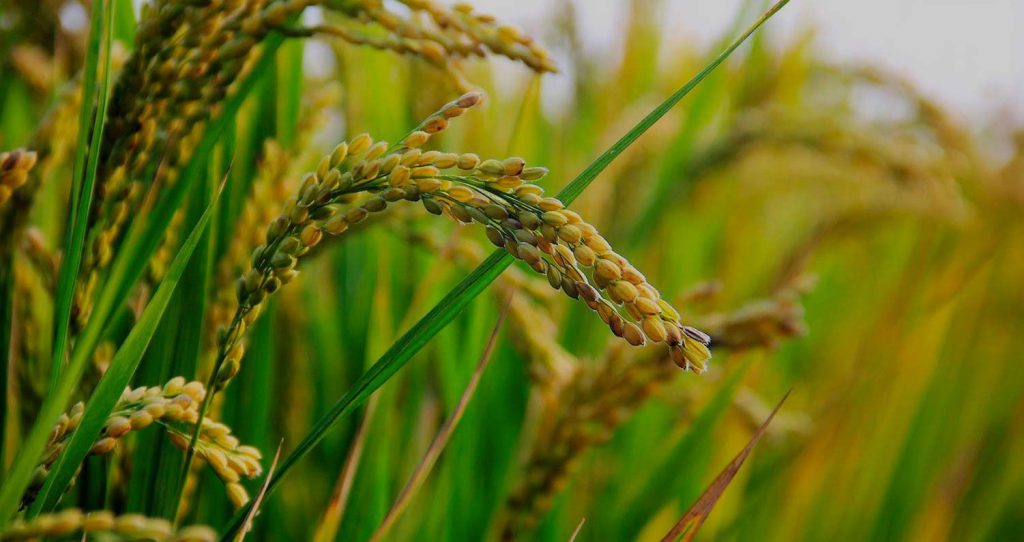CRISPR for Climate Change
Planetary health is human health. IGI’s mission is to use genome engineering to solve humanity’s greatest problems. There is no greater problem facing the world today than climate change, which is why IGI’s Sustainable Agriculture Program is developing a growing portfolio of projects related to climate change mitigation and adaptation.
Removing Atmospheric Carbon
Along with efforts to reduce greenhouse gas emissions, carbon dioxide removal could play an increasingly important role in reducing the global impact from climate change and reversing its course. We already have technologies that do this quite well: plants, microbes, and other living organisms, but they were optimized for a world without large amounts of excess carbon produced by humans.
A research program at the IGI, supported by the Chan Zuckerberg Initiative (CZI), is using CRISPR genome editing to enhance the natural ability of plants and soil microbes to capture carbon from the atmosphere and store it in agricultural soils. Agricultural soils have lost 487 gigatons of CO2 (equivalent) since the advent of modern agriculture, so the goal is to use land already being used for agriculture to capture and replenish the soil carbon on a scale that can meaningfully impact the climate crisis.

Read more about this work:
Reducing Agricultural Emissions
According to the Food and Agriculture Organization of the United Nations, 31 percent of all human-made greenhouse gas emissions come from agriculture. Projects at the IGI are working on directly reducing emissions from livestock and rice paddies where the source of the methane emissions is ultimately from microbes.
Microbes may be tiny, but they play an outsize role in greenhouse gas emissions. IGI is studying methane emissions from rice paddies, generated by microbes in the soil, with the goal of learning how to reduce or eliminate these climate-warming emissions. Learn more in this episode of Inside Genomics from the IGI, which follows Jill Banfield and members of her team out into the rice paddies of California’s Central Valley
Animal agriculture is the single largest source of methane emissions from human activity, but the methane is not coming from the livestock directly — it’s generated by microbes in their guts. In an initiative funded through the Audacious Project, a team at the IGI is developing new tools to edit the gut microbiome of cows to sustainably reduce methane emissions.
Read more about this work:
Improving Food Security
In the midst of the climate crisis, global agriculture has to continue to feed a growing population while adapting to changing conditions. IGI is using genome engineering to help crop plants adapt to drought, disease, flooding and other challenges associated with climate change.

